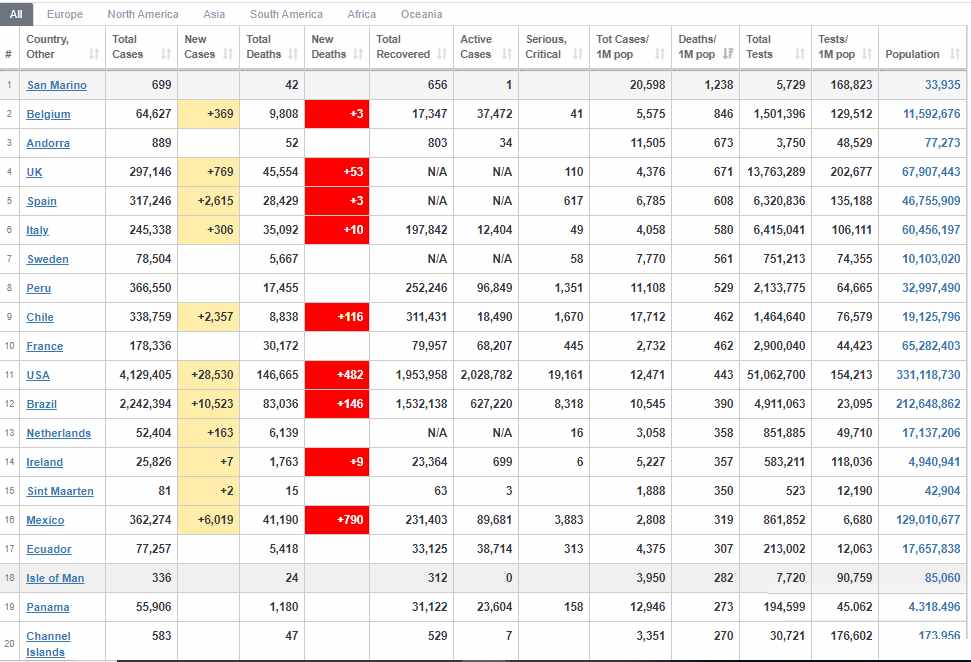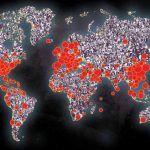Countries using hydroxychloroquine have low coronavirus fatality rate compared to countries that don’t, Association of American Physicians and Surgeons says
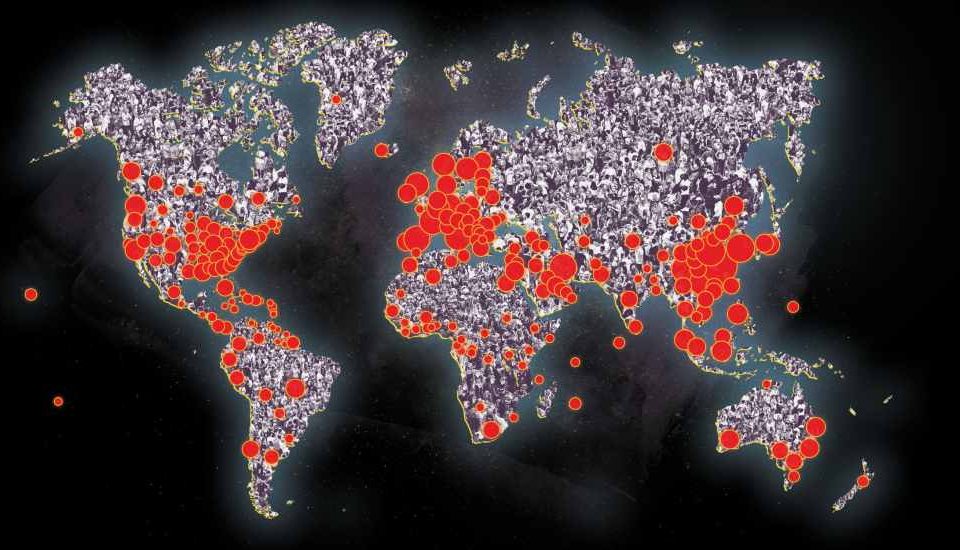
The Association of American Physicians and Surgeons (AAPS) is a non-partisan and non-profit professional association of physicians founded in 1944. According to the information on its website, AAPS has been dedicated to the highest ethical standards of the Oath of Hippocrates and to preserving the sanctity of the patient-physician relationship and the practice of private medicine. Its motto is: “omnia pro aegroto” means “all for the patient.” The group is reported to have about 5,000 members in 2014.
We wrote about AAPS back in April after the group published a report of its study that showed hydroxychloroquine to have about 90 percent chance of helping COVID-19 patients. At the time, the group reported that a total number of 2,333 coronavirus patients were treated with HCQ, with or without zinc and the widely used antibiotic azithromycin. The report was based on observational data from China, France, South Korea, Algeria, and the U.S. Of these, 2,137 or 91.6 percent improved clinically. There were 63 deaths, all but 11 in a single retrospective report from the Veterans Administration where the patients were severely ill.
In late June, the group filed its motion for a preliminary injunction with court to compel release to the public of hydroxychloroquine by the Food & Drug Administration (FDA) and the Department of Health & Human Services (HHS), in AAPS v. HHS, No. 1:20-cv-00493-RJJ-SJB (W.D. Mich.).
As part of the filing with the court, AAPS also includes a chart showing how countries that encourage HCQ use, such as South Korea, India, Turkey, Russia, and Israel, have been far more successful in combatting COVID-19 than countries that have banned or discouraged early HCQ use, as the FDA has.
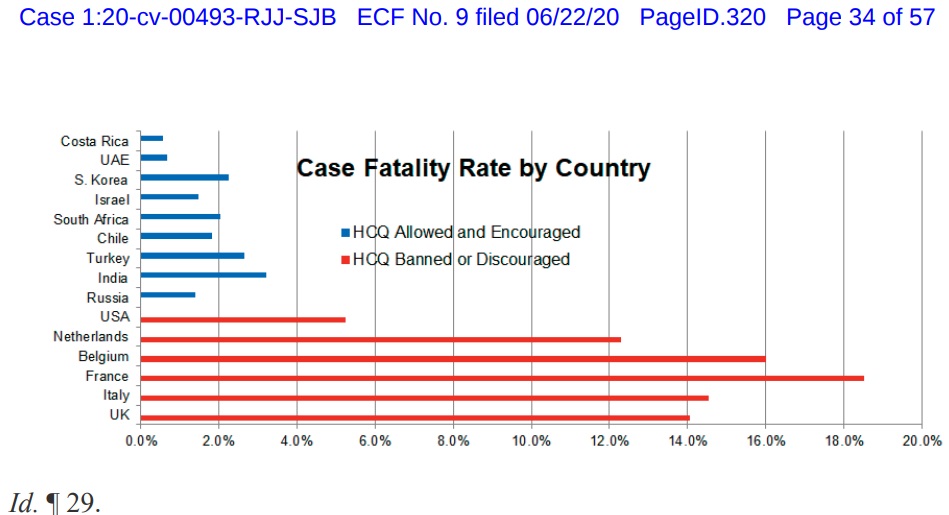
According to AAPS, nearly 100 million doses of hydroxychloroquine (HCQ) were donated to federal agencies, and yet they have not released virtually any of it to the public.
Last week the FDA even misled the public by falsely stating that HCQ should not be used to treat COVID-19, when multiple studies show its benefits, and thousands of patients have been successfully treated worldwide. A perfect storm of politics in this presidential election year, along with conflicts of interest at the Defendant federal agencies, has resulted in unjustified obstacles to access to HCQ, an inexpensive medication having a track record of more than 75 years of safety,” AAPS writes in its brief being filed today in federal court.
AAPS is not alone in showing the correlation between the use of hydroxychloroquine and low fatality rate. Below is another chart showing low COVID-19 fatality rate in countries that encourage the use of HCQ.
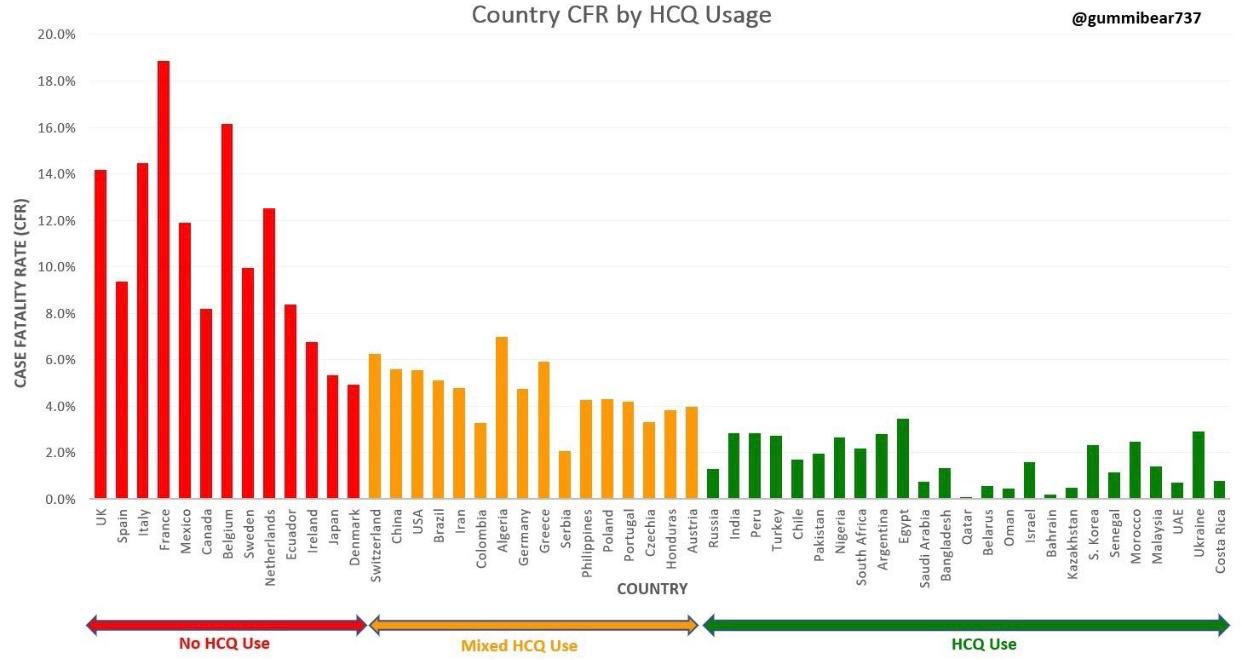
Of note, the above chart says no HcQ used in Italy, France, Spain, which partially true. Hydroxychloroquine was in fact tried early on in those countries but with little effect before it was later abandoned.
However, doctors pointed out that only hydroxychroquine protocol was tried on patients on ventilators as a last ditch effort and was not tried in combination with zinc as opposed to using the drug in the early phase of infection. Many doctors also said that these countries did not use “hydroxychroquine protocol, a combination of hydroxychloroquine, zinc and azithromycin.
Many doctors also pointed out that it is the zinc that kills virus, hydroxychloroquine simply opens the cell. Using this treatment in outpatient setting as early as possible has an above 90% fatality reduction rate. Below is a visual illustration of how the three drugs work together to combat the virus.
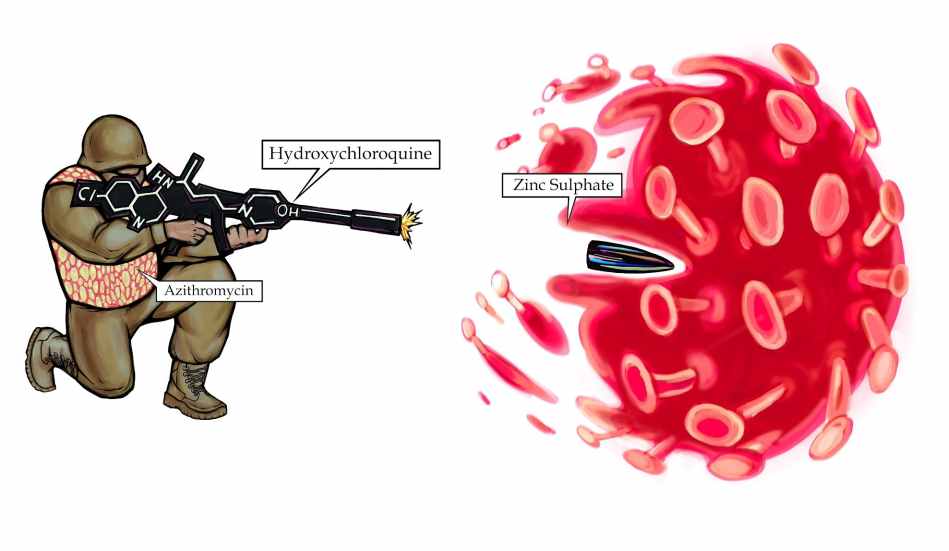
Below is the a table of top 20 countries with highest fatality rate by million population. The US is number 11.
